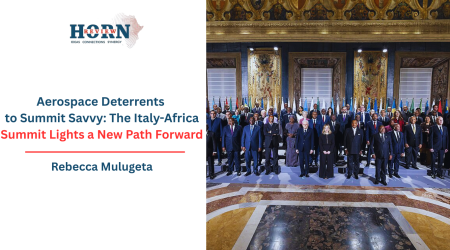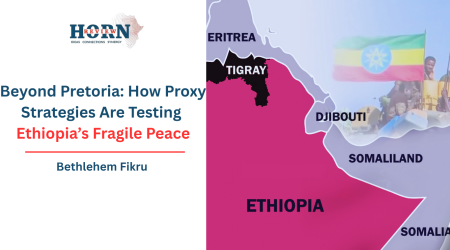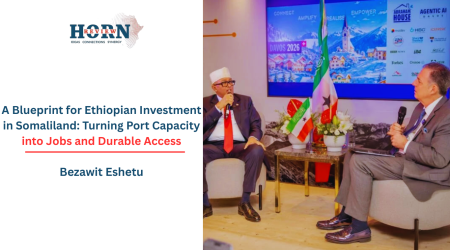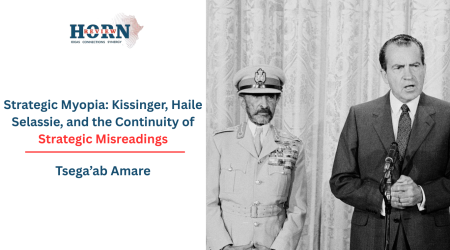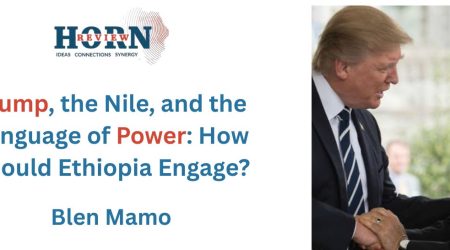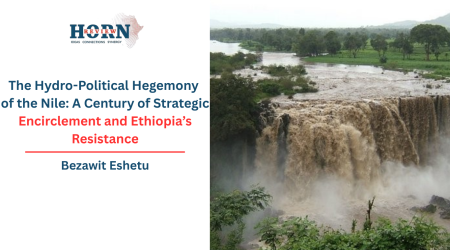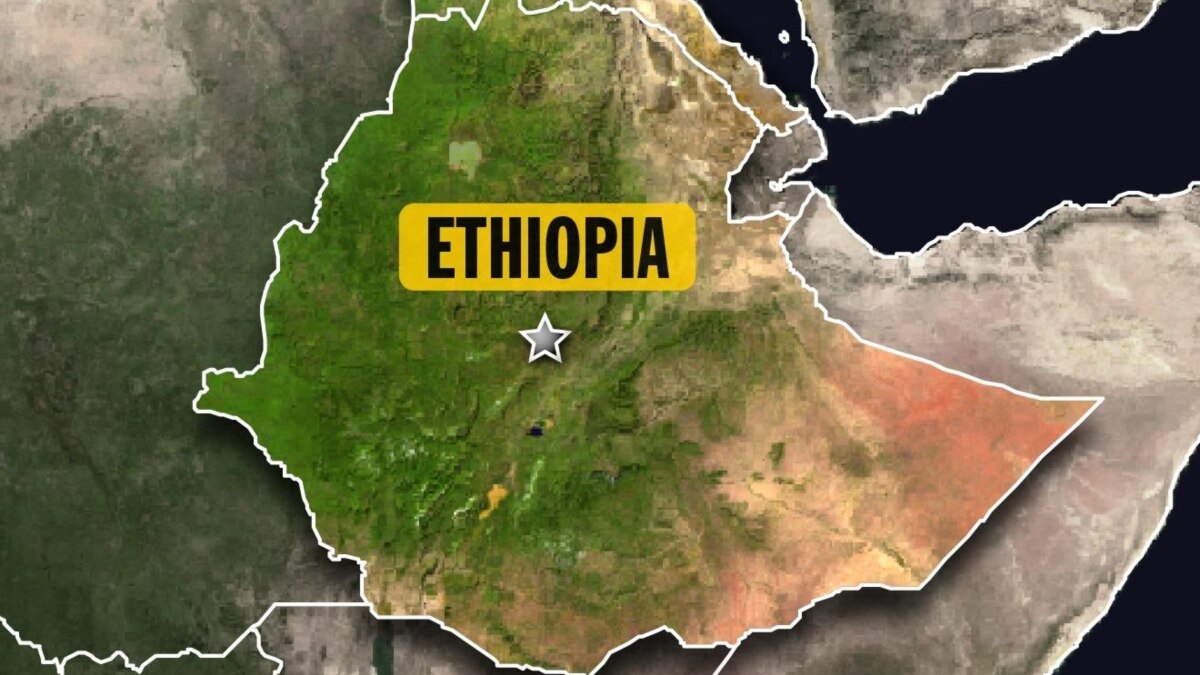
30
Jul
Beyond Ethiopia’s Reset Syndrome: Structural Violence, Institutional Void, & the Struggle for Political Continuity
In Ethiopia, power does not transfer, it resets. Every regime that rises to power, whether through revolution or refor, tends to discard what came before it. Institutions are dismantled, national myths rewritten, and the slate wiped clean, typically at immense cost. What appears as political renewal is often simply another form of structural violence: less visible than war but no less harmful. This do-over cycle has been the hallmark of Ethiopia’s modern political life. It is time to ask: Why does Ethiopia fail to create continuity? Why must every generation begin again, rather than inheriting stable systems of governance, defense, and development? Why must every regime change trigger institutional collapse, economic regression, and civic trauma instead of reform?
The problem is not in any one leader, but in the absence of deep institutions, the over-reliance on leadership charisma, and a political culture still waiting to put system before savior. The goal should not be to find the next great leader but to build a state where leadership changes without systemic collapse—a state where institutions, not individuals, carry the torch forward. Ethiopia lacks what political theorist Douglass North called institutional depth: the layering of regulations, statutes, and bureaucratic traditions that persist beyond governments. In Ethiopia, power is not institutionalized; leaders consume systems, rather than being constrained or guided by them. Territorial coherence is insufficient to guarantee sovereignty without systemic integrity; national cohesion breaks down. Sovereignty cannot survive on geography alone; it requires enduring institutions. Modern states like Taiwan and Israel illustrate this principle. Despite existential external threats and contested borders, their sovereignty holds because of deep-rooted institutions, civic unity, and the rule of law.
Ethiopia’s political history is that of structural discontinuity. Pre-1974 monarchical rule had begun modernizing but lacked a professional bureaucracy or neutral army. Its collapse led to the Derg, a Marxist militarized regime that purged civil institutions and ruled through coercion. After the collapse of the Derg in 1991, ethnic federalism was brought in by the EPRDF, for decentralization and representation, but the party became the state itself, transgressing actual separation of institutions. The current period, beginning in 2018, aimed for reform, national unity, peace, and economic transformation. To its credit, Prime Minister Abiy Ahmed’s administration made efforts to break from the cycle of total resets, choosing instead to retain, reform, and repurpose aspects of the existing system rather than discarding them wholesale. This included attempts at liberalizing the political space, inviting exiled groups into dialogue, and preserving elements of state continuity. These efforts were often met with fierce resistance from within the establishment, illustrating the difficulty of transforming a culture of reset into one of reform. Still, the administration has struggled under the immense institutional pressure inherited from past fragilities, and the reforms have faced setbacks due to war, instability, and entrenched political fragmentation.
The focus is not critique for its own sake, but recognition that without deep institutional backups, even the most promising transitions are vulnerable to collapse.
Structural violence, according to Johan Galtung, refers to harm inflicted not by visible conflict but through the absence of working, equitable institutions. Its effects are seen in the breakdown in public confidence in public services, erosion of civic engagement, and failure of peaceful resolution of conflicts. When institutions are treated as transitory or identified with political parties or individuals, they cannot keep society together. Civic memory is lost, bureaucratic talent wasted, and political transitions turn into violent ruptures rather than evolutionary steps.
This cycle is compounded by Ethiopia’s political amnesia culture, a national tendency to forget or ignore past governance systems, lessons, and failures. Each regime writes over the record, discards institutional memory, and starts anew without experience or preservation. This forgetting creates generational disorientation, besmirches national identity, and ensures that laboriously acquired knowledge dies with each political debacle. Instead of capitalizing on achievement, the country resets its pillars of foundational strength repeatedly, creating fragility in the guise of reform. While ideological shifts are common in many states, Ethiopia’s crisis runs deeper.
Ethiopia has also swung between foreign ideologies like monarchism, socialism, developmentalism, and neoliberalism – none of which were organically rooted in its sociopolitical landscape. None were fully integrated into its social, cultural, or historical realities. The country has never developed an indigenous political philosophy, a guiding doctrine reflective of its civilizational heritage. Without this, institutions remain vulnerable, adaptable only to the will of those in power. This weakness invites not only internal instability but external interference and donor dependency. Malfunctioning systems lead to regional fragmentation, militarization, and cycles of violence. Ethiopia’s recent conflicts in Tigray, Amhara, and Oromia prove that – a nation on the brink of Hobbesian disintegration in which state failure is “a war of all against all.” The creation of an Ethiopian school of thought – a homegrown political philosophy grounded in the country’s lived realities – could grant long-term continuity, guide national cohesion, and foster durable governance.
The fundamental philosophical question remains: should Ethiopia be led by saviors or by systems? The obsession with strongmen must give way to a commitment to strong institutions. A modern, sovereign state cannot be built around charisma. It must be anchored in professionalism, accountability, and continuity. “War makes states,” the political maxim says. But in Ethiopia, regime change too often unmakes them. Revolution without institution-building is slow-motion civil war.
To break this cycle, Ethiopia must commit to deliberate institution-building. It requires a constitutional framework to manage peaceful political transitions, rather than allowing them to devolve into ruptures. It must demilitarize its politics by building a nationally consolidated, apolitical armed force. An independent, long-term economic strategy shielded from party agendas must replace short-term policy shifts. The establishment of a Political Philosophy Commission to develop a doctrine of rule rooted in Ethiopia’s civilizational identity is crucial. Governance must decentralize based on administrative capability, not ethnicity, while national unity is strengthened through shared civic education, symbolic continuity, and inclusive historical memory. The civil service must be meritocratic, detached from party control, and protected through institutional record-keeping and knowledge preservation.
The second critical step is fostering inclusive political debate. National reconciliation must happen not through elite deals alone, but by building spaces where a wide range of voices can help define the values and structures that will guide the country. Institutions resilient to upheaval can only be created through shared public ownership and long-term commitment.
Ethiopia stands at a turning point. It must now choose between another regime or a durable system. If it chooses the latter, it will need more than political promises, but the collective will to create institutions that outlive any individual. The question is no longer about ideology or leadership. It is about survival. Ethiopia must institutionalize memory, entrench resilience, and imagine a state strong enough to endure. That is how a nation transitions from reactive survival to sovereign continuity – through memory, through systems, and through a vision larger than power itself.
By Surafel Tesfaye,Researcher, Horn Review

